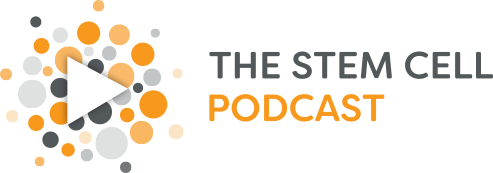 The Jacob Hanna Lab is at the Weizmann Institute of Science in Israel. Working as a component of the institute’s Department of Molecular Genetics, the lab has affiliations with Chromatin and RNA Gene Regulation I-Core (Israeli Center of Research Excellence) and Azrieli Institute for Systems Biology. The lab is made up of scientists with multi-disciplinary backgrounds. Their main thrust is to gain a better understanding of embryonic stem cell structures and functions, along with early and advanced development of human disease modeling.
The Jacob Hanna Lab is at the Weizmann Institute of Science in Israel. Working as a component of the institute’s Department of Molecular Genetics, the lab has affiliations with Chromatin and RNA Gene Regulation I-Core (Israeli Center of Research Excellence) and Azrieli Institute for Systems Biology. The lab is made up of scientists with multi-disciplinary backgrounds. Their main thrust is to gain a better understanding of embryonic stem cell structures and functions, along with early and advanced development of human disease modeling.
Focus on Pluripotent Stem Cell Studies and Epigenetic Reprogramming
 The research being done at Jacob Hanna Lab zeroes in on investigating cellular reprogramming processes which involve generating induced pluripotent stem cells from somatic cells. Reprogramming requires eliminating and remodeling epigenetic marks like DNA methylation. By using exogenous small molecules or transcription factors, epigenetic reprogramming can be artificially induced. This will create induced pluripotent stem cells that can be used for biomedical and stem cell therapy research, without the need of embryos.
The research being done at Jacob Hanna Lab zeroes in on investigating cellular reprogramming processes which involve generating induced pluripotent stem cells from somatic cells. Reprogramming requires eliminating and remodeling epigenetic marks like DNA methylation. By using exogenous small molecules or transcription factors, epigenetic reprogramming can be artificially induced. This will create induced pluripotent stem cells that can be used for biomedical and stem cell therapy research, without the need of embryos.
Pluripotent cells are important because they are master cells. Basically, these cells can make any cell or tissue that the body needs to fix itself. Since pluripotent cells can, under the right parameters, differentiate into any type of cell, they are also described as true stem cells. However, after the embryonic development phase, this characteristic of pluripotency is lost. Using a wide variety of biological experimentation techniques including advanced microscopy and genomic analyses, the Jacob Hanna Lab explores how the mastery or pluripotency of cells can be maintained and reconfigured all throughout early embryonic development.
Research Findings at the Lab
1. Understanding Cellular Reprogramming
In 2006, a development was made that makes it possible for scientists to reverse cellular differentiation and produce induced pluripotent cells via epigenetic reprogramming of somatic cells. The Jacob Hanna Lab is at the forefront of exploring the spectacular changes that occur in the cells during epigenetic reprogramming and knowing how these molecular changes can be related to in-vivo procedures.
The lab has already pinpointed two chromatin regulators that are vital in epigenetic reprogramming. One chromatin is key in the process, while the other multi-component complex is described as an obstacle which, if removed, could make reprogramming faster and better synchronized.
2. Working Out Naïve and Primed Pluripotent States
Pluripotent cells can be found in either naïve or primed state. Naïve pluripotent state is established in mature blastocyst. Primed pluripotent state, on the other hand, is established in the post-implantation epiblast. Only naïve cells can meaningfully contribute to the chimera or organism made up of genetically different cells.
The lab takes a closer look at how naïve and primed pluripotent cells are regulated both in mice and humans. Firstly discovered by Hanna lab, scientists are now able to maintain the naïve condition of human pluripotent cells, which can greatly benefit research on cross-species chimeric embryos in mice and potentially other animals. Present efforts on this matter also focus on shedding light on naïve and primed cellular states across multiple species.
3. Cross-Species Chimerism in Human and Mouse
At Jacob Hanna Lab, they have found that human stem cells that have been produced in naïve cellular state can be introduced into mouse blastocyst. This finding is instrumental in cross-species chimeric embryos. The result of this investigation may have wide-ranging impact on human disease modeling.
This is the first of a series of featured labs that we will be publishing here on The Stem Cell Podcast website.
The Stem Cell Podcast Team

